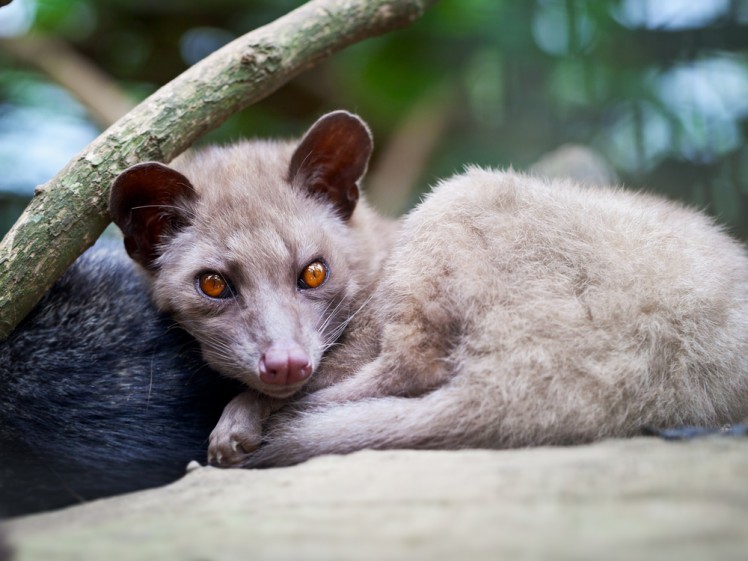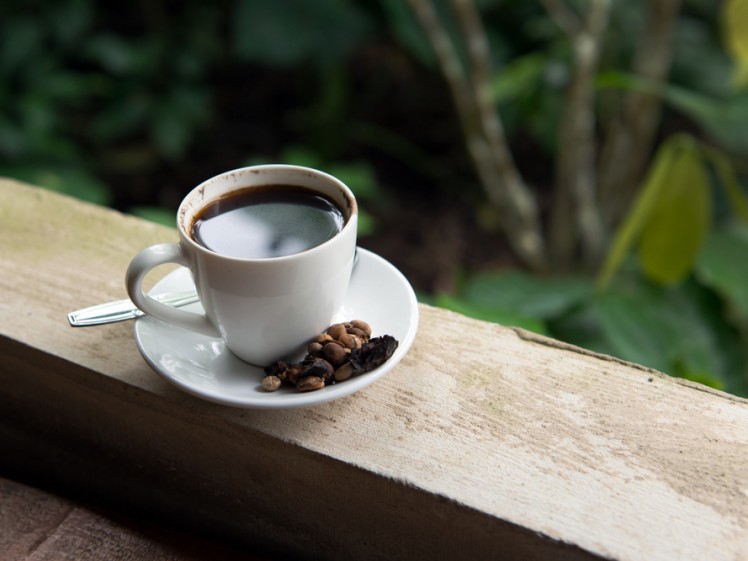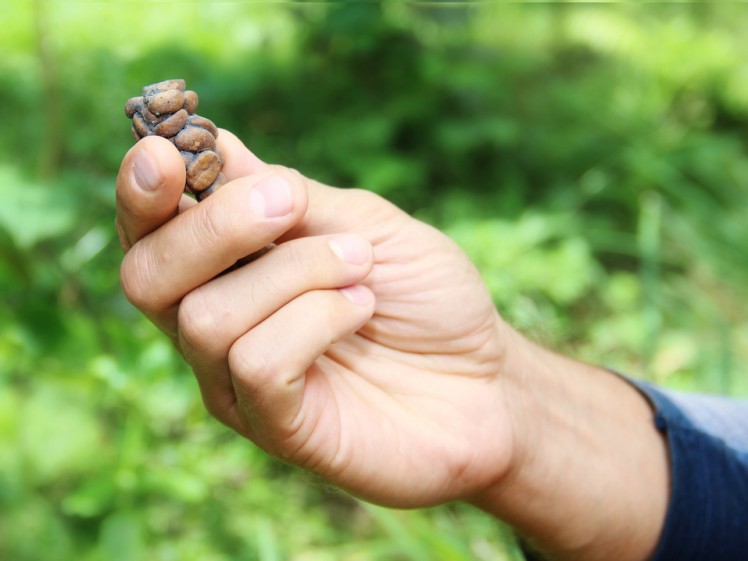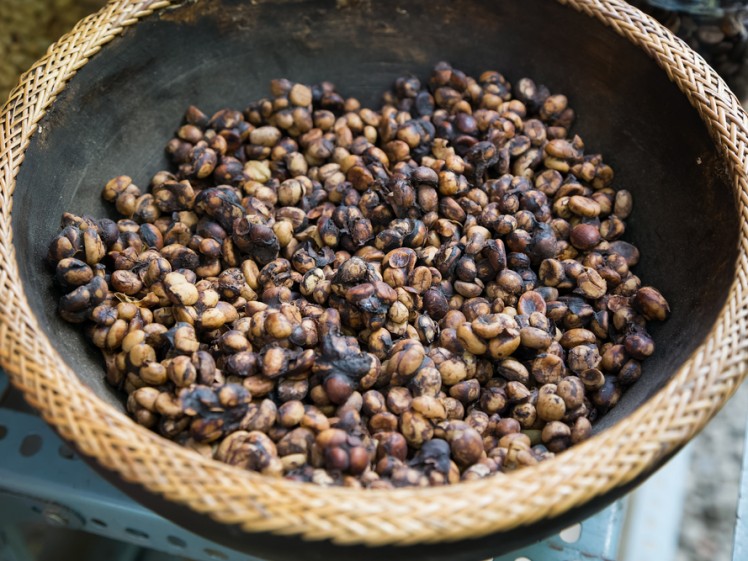In a region whose most populous island has become a synonym for coffee, there are plenty of outstanding roasts and blends available year-round. As TEG Group Editor Chad Merchant discovered, the costliest of them all is not among these; this is why he isn’t falling prey to the kopi luwak hype.
It’s a great irony that here in Southeast Asia, a region replete with truly excellent coffees, people are looking to immensely costly cups of the bizarre kopi luwak to satisfy their coffee urges (or perhaps to show off their financial wherewithal). Marketed as much more than a routine cup of joe, this purportedly special coffee is made from beans which have passed through the digestive tract of the palm civet, a small mammal that looks a bit like a cross between a cat and a weasel, called luwak in Indonesia, the birthplace of kopi luwak.

The idea is that the civet is a natural connoisseur, selecting only the best coffee berries to eat as part of its natural diet. The undigested seeds of the berries – which we would recognise as unroasted coffee beans – are then excreted in the civet scat. So let’s be clear here: if there is any greater testament to the power of effective marketing in the history of mankind, I haven’t found it.
When it comes to kopi luwak, not only will people queue up to drink coffee made from beans that have been partially digested and excreted from a small animal, they’ll also pay a staggering premium for it.
A couple of years ago, I had the chance on a trip to Bali to experience this “very special coffee” as part of a tour organised by the resort in which I was staying. Suffice it to say I was not impressed, as you may have guessed by now. Though the coffee’s promoters wax lyrical about the magical aroma and tantalising hints of chocolate and caramel in kopi luwak, my opinion is that it’s just a fairly bland and characterless coffee.

The civet’s digestive enzymes strip the coffee berry of much of its bitterness, which sounds like a good thing, but the bitter element in coffee is in fact a crucial player in the beverage’s symphony, a component that lends both balance and depth.
Each to his own, though, of course: some people may love the smoothness of kopi luwak, but I found it quite uninspiring. I’d take a rich, punchy Vietnamese coffee or a deliciously complex Malaysian kopi campur or Ipoh white coffee – both of whose source beans are roasted with margarine and/or sugar, of all things – over a bland, budget-busting kopi luwak any day.
But while it’s admittedly satisfying (from my distinctly bourgeois perch) to mock kopi luwak aficionados for their willingness to pay such exorbitant sums for poop coffee, as with many animal-centred extravagances, the practice will ultimately lead to cruelty.

Once we humans discover there’s money to be made, there’s no end to the measures we will take to exploit the animals involved.Whether it’s shark fin, bird’s nests, rhinoceros horns, or tiger genitalia, the potential payoff for humans often tramples any concern for animal welfare.
It doesn’t help that many times, these unfortunate animals live in developing countries where economic opportunities for their human inhabitants can be desperately thin, meaning any ethical considerations will usually take a back seat.
When a kilo of shark fin can sell for hundreds of dollars and golfers in Cambodia will pay US$300 for a bowl of bear paw soup to “improve their swing,” you can see why these animals are slaughtered en masse and why there would be no moral compunction at all about trapping and imprisoning a civet in a tiny cage, feeding it almost nothing but coffee berries. Whereas a kilo of regular coffee beans might fetch only a few dollars for a smallholder in Indonesia, a kilo of caged civet kopi luwak beans commands much, much more.
And while the marketing blurbs extol the coffee’s supreme rarity, now that demand has led to civets being trapped and confined in huge numbers to allow tonnes of the costly coffee to be produced every year, you can see that it’s really not so rare after all.
To be fair, some producers are making the effort to ethically produce kopi luwak. A brand called Sijahtra, from a company founded by a former Goldman Sachs banker, is by all reports demonstrably ethical and sustainable, its partners sending workers into the jungle in search of civet droppings, which are collected and returned for what is hopefully a very thorough washing and roasting process.

This coffee, produced in this manner, actually is rare, and the labour-intensive method contributes to the coffee’s high cost. But mostly it’s just down to hype.
While the kilo might be bought from the farmer for $100 or so, by the time it gets to the market, it’s nowhere near that, selling for over $2,800 per kilo at Harrods in London. So in my view, if you’re going to drink this stuff at all, it’s better to seek out ethically produced brands like Sijahtra, even if it means ponying up seriously big bucks. But perhaps it’s best to just steer clear altogether – if not for the dubious nature of the coffee itself, then for the fact that the soaring demand for it will never end up being good for the little animal who makes it all possible.
This article was originally published in The Expat magazine (May 2016), which is available online or in print via a free subscription.
"ExpatGo welcomes and encourages comments, input, and divergent opinions. However, we kindly request that you use suitable language in your comments, and refrain from any sort of personal attack, hate speech, or disparaging rhetoric. Comments not in line with this are subject to removal from the site. "






















The Luwak are kept in small confined area, forced fed and pretty much tortured so you can have a taste of some ridiculous expensive coffee… #compassion
Kopi luwak ni..kopi yg diperbuat dari tahi kambing ni. Mmang sedap…diaorg bg makan kambing kopi byk2, pastu kambing berak…najis di ambil & dijemur utk hasilkan serbuk kopi
I had it in Vietnam. Nothing special. It’s coffee. All coffee in Vietnam is good.
I have tried. Don’t waste your money.
The thought of me drinking coffee from wild cat poop..it’s the death of me!.. NO WAY HIGH WAY!!
Maybe if that make u flying high!!!
Drinking wild cat shit is never worth it..
No